
When your Chevrolet's Engine Light illuminates with the P0047 fault code, it's a sign that your turbocharger's boost control solenoid control circuit is experiencing low voltage, likely causing reduced engine performance, decreased fuel efficiency, and a frustrating driving experience.
This code can lead to difficulties starting the engine, especially when cold, and may result in increased fuel costs.
Common causes include faulty solenoid valves, open or shorted harnesses, and poor electrical connections.
To diagnose, inspect the wiring harness, measure voltage, and consult your factory service manual.
You'll want to investigate further to identify the root cause and find a solution.
- Key Takeaways
- Symptoms of the P0047 Chevrolet Code in Chevrolet Vehicles
- Common Causes of the P0047 Chevrolet Code: A Diagnostic Overview
- How to Diagnose the P0047 Chevrolet Code: Step-by-Step Procedure
- Effective Solutions: Repairing the P0047 Chevrolet Code
- Cost Analysis and Essencial Tools for Resolving the P0047 Chevrolet Code
- Preventive Measures to Avoid the P0047 Chevrolet Code in the Future
- Chevrolet Models Most Affected by the P0047 Chevrolet Code
- Related Fault Codes to P0047 Chevrolet Code
- Frequently Asked Questions
- Conclusion
Key Takeaways
- The P0047 Chevrolet code indicates a low voltage issue in the Turbocharger Boost Control Solenoid Control Circuit, affecting engine performance.
- Common causes include a faulty Turbo Control Solenoid Valve, open or shorted harness, poor electrical connections, and low voltage in the control circuit.
- To diagnose, visually inspect the harness and connectors, measure voltage at the solenoid valve circuit, and consult the factory service manual.
- Effective solutions involve repairing or replacing the faulty solenoid valve, resetting the Engine Control Module, and checking for damage or wear on wiring and connections.
- Regular maintenance, inspections, and monitoring throttle response can help prevent the P0047 code and related issues in Chevrolet models with the Duramax 6.6L V8 turbo-diesel engine.
Symptoms of the P0047 Chevrolet Code in Chevrolet Vehicles
When your Chevrolet's engine is plagued by the P0047 code, you may notice a range of symptoms that can impact your driving experience, including an illuminated Engine Light or Service Engine Soon Warning Light on your dashboard.
Reduced engine performance: Your engine may struggle to produce its usual power and efficiency, making it difficult to accelerate or climb steep hills.
Decreased fuel efficiency: The P0047 code can cause your engine to consume more fuel than usual, leading to decreased gas mileage and increased fuel costs.
Difficulty starting the engine: In some cases, the Turbocharger Boost Control Solenoid Control Circuit fault can make it challenging to start your engine, especially when the engine is cold.
These symptoms can be frustrating, but understanding them is the first step towards diagnosing and fixing the underlying issue.
Common Causes of the P0047 Chevrolet Code: A Diagnostic Overview
As you've identified the symptoms of the P0047 code in your Chevrolet, it's time to investigate the root causes of this turbocharger-related issue, which may be rooted in faulty components or electrical connections.
The Turbocharger Boost Control system relies on the Solenoid Control Circuit to regulate boost pressure and turbo vanes. When the system detects a low voltage in this circuit, it triggers the P0047 code.
A faulty Turbo Control Solenoid Valve can prevent proper boost pressure regulation.
An open or shorted Turbocharger Control Solenoid Valve harness can disrupt electrical signals.
A poor electrical connection in the Solenoid Control Circuit can lead to voltage fluctuations.
How to Diagnose the P0047 Chevrolet Code: Step-by-Step Procedure
You'll need to gather your tools and consult your factory service manual to diagnose the P0047 code, starting with a visual inspection of the Turbocharger Control Solenoid Valve harness and connectors. Look for signs of damage, corrosion, or wear on the wiring and connections.
Next, use a multimeter to measure the voltage at the Turbocharger Control Solenoid Valve circuit. Compare the reading to the manufacturer's specifications to determine if it's within the acceptable range.
The key steps to follow are:
- Visual inspection of the Turbocharger Control Solenoid Valve harness and connectors
- Measurement of the voltage at the Turbocharger Control Solenoid Valve circuit
- Consultation of the factory service manual for guidance and specifications
Effective Solutions: Repairing the P0047 Chevrolet Code
Now that you've diagnosed the P0047 code, it's time to focus on repairing the faulty Turbocharger Control Solenoid Valve circuit. To get started, review the possible causes of the code, including a faulty Turbocharger Control Solenoid Valve, harness issues, or poor electrical connections.
Inspect and repair the wiring harness: Check for damaged components and inspect connector pins for signs of damage.
Replace the faulty Turbocharger Control Solenoid Valve: If necessary, replace the valve to restore proper Turbocharger Boost Control.
Reset the Engine Control Module (ECM): Once repairs are complete, reset the ECM to guarantee it's communicating correctly with the Turbocharger Control Solenoid Valve.
Cost Analysis and Essencial Tools for Resolving the P0047 Chevrolet Code
Your cost to diagnose and repair the P0047 Chevrolet code can add up quickly, depending on the tools and expertise needed to resolve the issue.
You'll need essential tools like:
A professional-grade scan tool, such as a Snap-on Solus Edge or an Autel MaxiSYS, which can cost between $1,000 to $3,000.
A wiring diagram and a multimeter, with prices ranging from $50 to $200 for the multimeter.
Replacement parts, such as the turbocharger boost control solenoid, which can cost between $200 to $500.
Additionally, labor costs for a professional mechanic can range from $100 to $300 per hour, depending on the location and shop rates.
Remember to factor in potential additional repairs, like replacing the turbocharger or boost pressure sensor, which can add to the overall cost of the repair.
Preventive Measures to Avoid the P0047 Chevrolet Code in the Future
Regular maintenance and inspections can help prevent the P0047 Chevrolet code from appearing in the future. By taking proactive steps, you can avoid the frustration and expense of dealing with this issue.
Check your wiring harness: Verify that the wiring harness is secure and not damaged, as a faulty wiring harness can cause the P0047 code.
Monitor your throttle response: A slow or sluggish throttle response can indicate a problem with your Turbocharger Boost Control, which can lead to the P0047 code.
Keep an eye on your vane position: If your vane position isn't functioning correctly, it can affect your turbocharger's performance, leading to the P0047 code.
Chevrolet Models Most Affected by the P0047 Chevrolet Code
Among Chevrolet models, the Silverado 2500HD and 3500HD from 2007 to 2013 are most prone to experiencing the P0047 code, which can cause issues with turbocharger performance and engine power.
If you own one of these models, it's vital to be aware of this common issue. You may also want to keep an eye out for problems in other affected models, including:
Chevrolet Avalanche (2007-2013)
Chevrolet Express 2500 and 3500 (2007-2014)
Chevrolet Suburban (2007-2014)
These models, equipped with the Duramax 6.6L V8 turbo-diesel engine, are known to experience the P0047 code, leading to reduced engine performance and decreased fuel efficiency.
Staying informed about potential issues with your turbocharger and solenoid can help you address problems early on and prevent more severe damage.
When diagnosing the P0047 code in your Chevrolet, it's also important to check for other related fault codes that may be triggered by similar issues with the turbocharger control solenoid valve or circuit.
This will help you identify the root cause of the problem and make the necessary repairs.
- P0048: Turbocharger Boost Control Solenoid Control Circuit High Voltage
- P0068: Turbocharger Boost Control Position Sensor Circuit Range/Performance
- P2261: Turbocharger Boost Control Position Sensor Circuit Low Input
If you notice any of these codes, it could indicate a faulty Turbocharger Control Solenoid Valve or a problem with the position sensor.
The PCM detects a mismatch between the commanded and actual control circuit states, which can trigger these codes.
Frequently Asked Questions
What Can Cause a Turbocharger Boost Solenoid to Pop up as an Engine Code?
Faulty wiring connections can prevent the turbocharger boost solenoid from getting the correct voltage, triggering the engine code. A turbocharger malfunction can also cause the code to appear.
Low battery voltage or solenoid corrosion can also be the culprit behind the engine code. When the battery voltage is low, it can affect the solenoid's performance, leading to the code.
Faulty ECU signals can miscommunicate with the solenoid, resulting in the engine code. This can occur when the Engine Control Unit (ECU) sends incorrect signals to the solenoid, causing it to malfunction and trigger the code.
What Is the Code for Turbo Boost Solenoid?
The code P0047 is related to the turbocharger boost control solenoid control circuit low voltage. This code indicates a problem with the solenoid function, which affects turbo performance, boost pressure, and engine optimization.
Proper turbo maintenance is vital to prevent this issue. Neglecting to address the code can lead to severe engine damage.
If you're experiencing reduced engine performance, decreased fuel efficiency, or difficulty starting the engine, it's imperative to address the code promptly.
What Is the Code P004A on the Odb2 Powertrain?
Code P004A on the OBD2 powertrain system indicates a problem with the turbocharger boost control solenoid 'A' circuit, signaling low voltage.
To diagnose, check the ODB2 connectors, wiring, and solenoid for signs of damage or corrosion. Use diagnostic tools to scan for trouble codes and monitor engine performance.
Understanding fault code meanings is vital for effective engine monitoring and repair.
What Is the Code P0046 Turbo Supercharger Boost?
Code P0046 refers to a turbocharger/supercharger boost sensor 'A' circuit range/performance problem. This code is triggered when the engine control module (ECM) detects an abnormal signal from the turbocharger boost sensor, indicating that the boost pressure isn't within the specified range.
The turbocharger boost sensor is responsible for monitoring the turbocharger's boost pressure and sending a signal to the ECM. If the sensor malfunctions, the ECM may not receive accurate data, leading to improper engine performance, decreased fuel efficiency, and potential engine damage.
To resolve the issue, it's essential to diagnose and repair or replace the faulty turbocharger boost sensor. Additionally, it's crucial to inspect the turbocharger system for any signs of damage, wear, or blockages, and perform necessary maintenance to prevent future problems.
Conclusion
You're now equipped with the knowledge to tackle the P0047 code in your Chevrolet.
By following the diagnostic steps and understanding the common causes, you'll be able to identify and fix the issue.
The fault may be related to a faulty turbocharger control solenoid valve or a wiring harness problem.
Identify the root cause and take the necessary steps to repair or replace the faulty component.
With the right tools and a bit of patience, you'll get your vehicle running smoothly again and avoid future occurrences of this code.
Si quieres conocer otros artículos parecidos a Fault Code P0047 Chevrolet: Turbocharger Boost Control Solenoid Control Circuit Low Voltage puedes visitar la categoría Chevrolet.
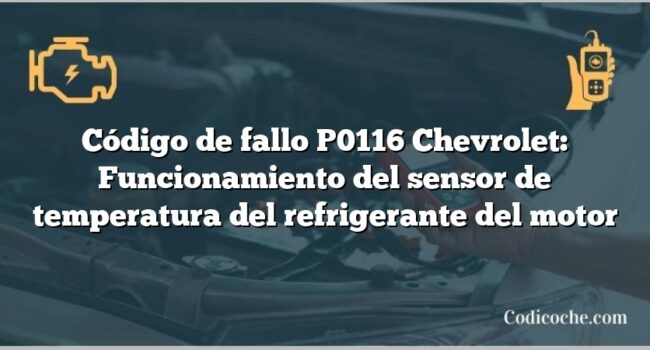
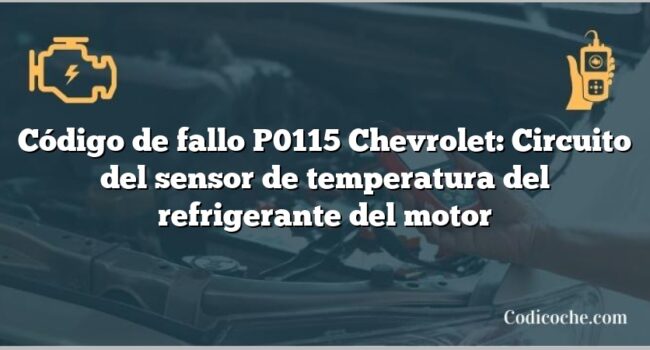
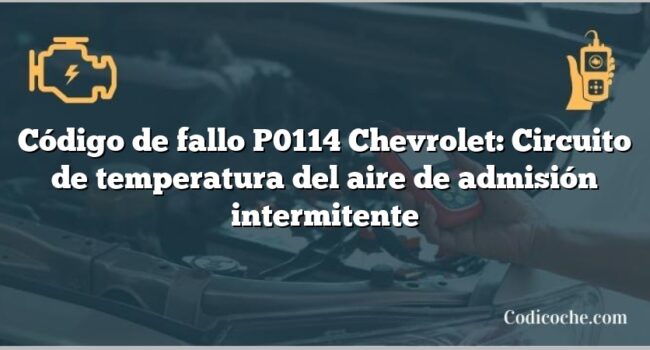
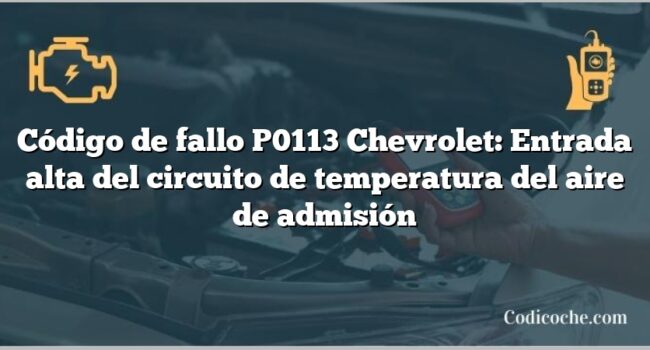
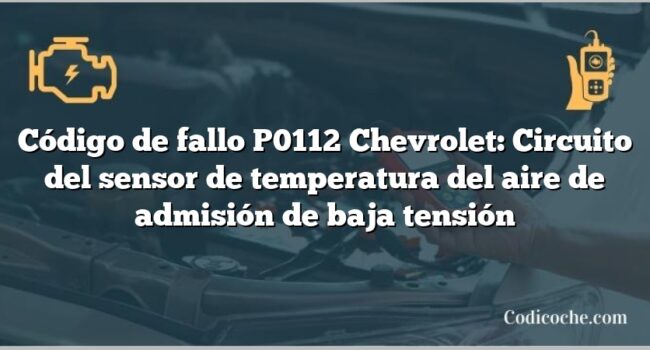












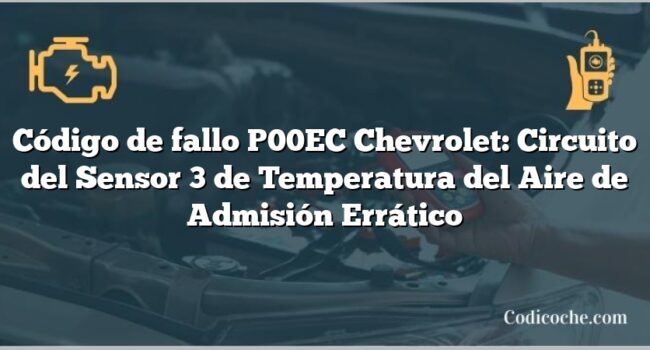
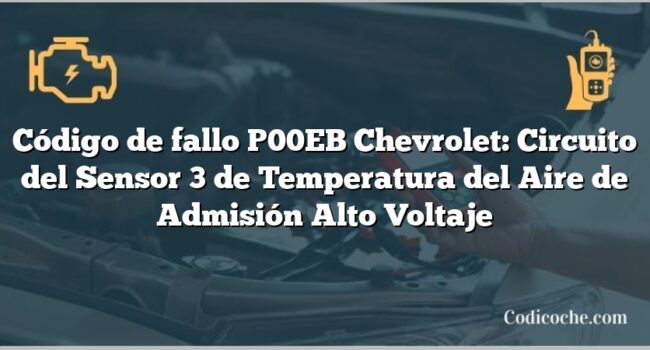
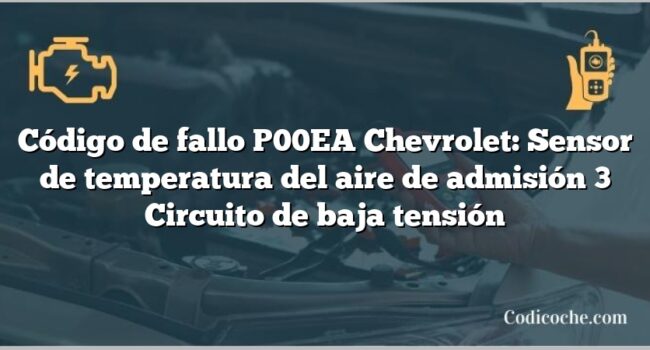
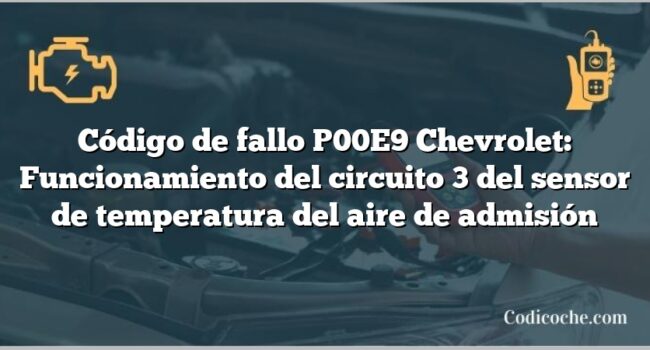
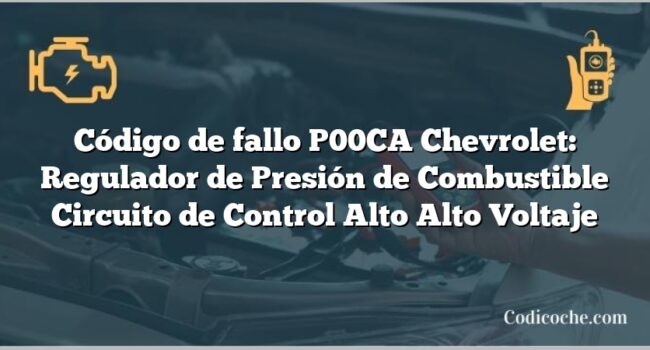

También te puede interesar: